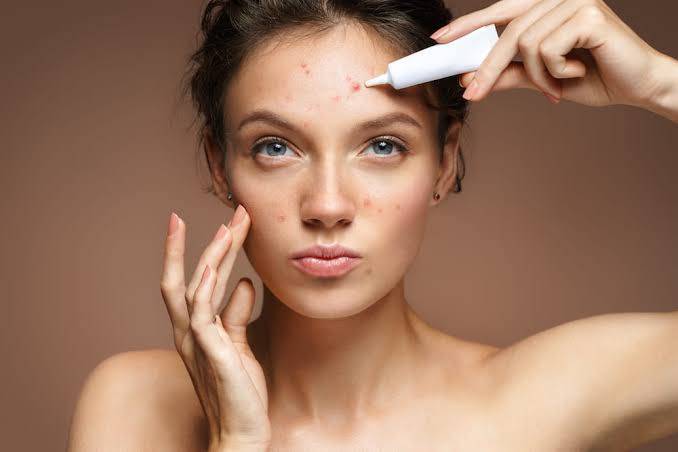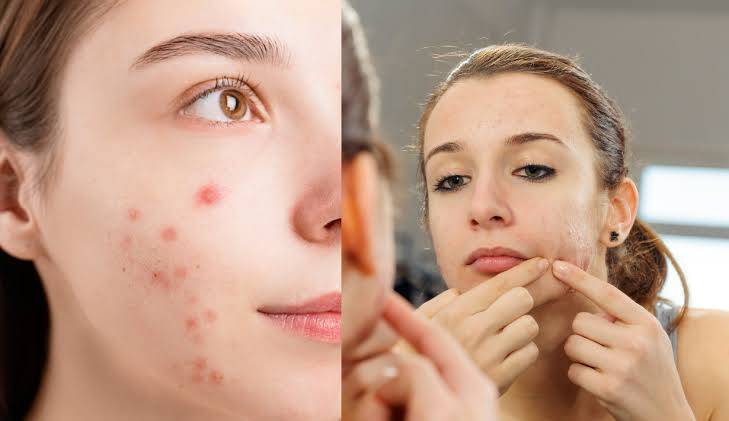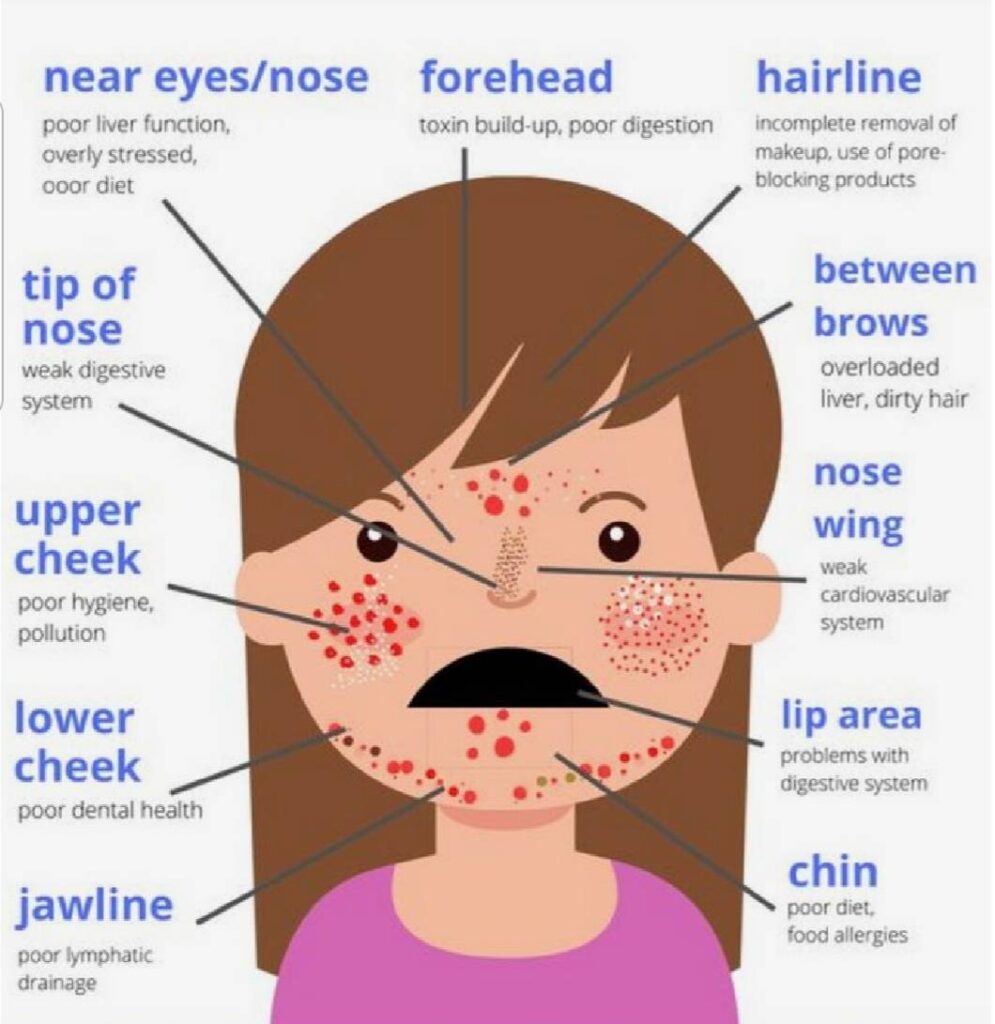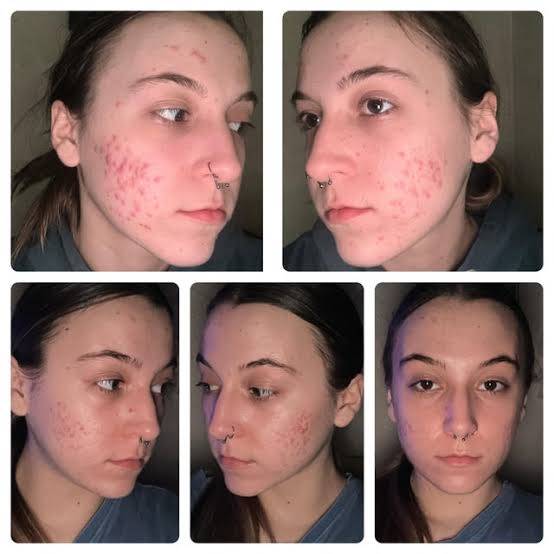
Tips for Caring for Acne-Prone Skin
Acne is a skin condition that affects millions of people worldwide, from teenagers to adults. While acne can be frustrating, it’s important to remember that it’s treatable with the right skincare routine and lifestyle choices. If you have acne-prone skin, understanding how to care for it is essential to prevent breakouts and improve the overall health of your skin. In this article, we’ll explore practical tips for caring for acne-prone skin, focusing on cleansing, treatment, lifestyle adjustments, and professional guidance.

- Gentle Cleansing is Key
One of the most important steps in managing acne-prone skin is cleansing. However, it’s vital to avoid over-cleansing or using harsh products that can strip your skin of its natural oils. This can actually worsen acne by triggering more oil production.
Use a gentle, non-comedogenic (meaning it won’t clog pores) cleanser designed for acne-prone skin. Look for ingredients such as salicylic acid or benzoyl peroxide, which help unclog pores and reduce inflammation. It’s important to wash your face twice daily—once in the morning and once before bed—using lukewarm water. Harsh scrubbing or hot water can irritate your skin and lead to more breakouts, so always be gentle during cleansing.
If you wear makeup, be sure to remove it at the end of the day to prevent clogged pores. Double cleansing, which involves using an oil-based cleanser followed by a water-based cleanser, can help ensure that your skin is thoroughly clean.
- Avoid Over-Exfoliating
Exfoliating can be beneficial for acne-prone skin as it helps remove dead skin cells that could clog pores. However, over-exfoliating can cause irritation and exacerbate acne. Exfoliating once or twice a week with a gentle exfoliant is usually enough for most people with acne-prone skin. Chemical exfoliants, such as products containing alpha hydroxy acids (AHAs) or beta hydroxy acids (BHAs), can be more effective and less abrasive than physical scrubs.
Be cautious with abrasive scrubs or tools like brushes, as they can irritate sensitive skin and may lead to more breakouts. Instead, opt for exfoliating products that are formulated specifically for acne treatment.
- Use Non-Comedogenic Moisturizers
Even if your skin is oily or acne-prone, moisturizing is crucial. Skipping this step can actually make acne worse because your skin will produce more oil to compensate for dryness. Choose an oil-free, non-comedogenic moisturizer that hydrates your skin without clogging pores. Gel-based moisturizers are often a great option for acne-prone skin because they’re lightweight and absorb quickly.
It’s also important to consider the environment. If you live in a dry or cold climate, you may need a heavier moisturizer to keep your skin balanced. Conversely, in humid climates, opt for lightweight products that won’t contribute to excess oil production.

- Topical Treatments for Acne
There are many over-the-counter and prescription treatments available for acne. Some common acne-fighting ingredients include:
- Salicylic Acid: A type of BHA that helps exfoliate the skin and keep pores clear. It’s particularly effective for treating blackheads and whiteheads.
- Benzoyl Peroxide: This ingredient kills acne-causing bacteria and reduces inflammation. It’s commonly used for more severe breakouts and cystic acne.
- Retinoids: These vitamin A derivatives help accelerate cell turnover, preventing clogged pores. Over-the-counter retinol or prescription-strength retinoids can be effective for treating acne and preventing future breakouts.
- Sulfur: This natural ingredient is often found in masks and treatments for acne. It helps absorb excess oil and has antibacterial properties.
When incorporating topical treatments into your skincare routine, it’s important to start slowly. Some ingredients, like benzoyl peroxide and retinoids, can cause dryness or irritation at first. Begin by using these products every other day and gradually increase use as your skin builds tolerance.
- Sun Protection is a Must
Acne treatments, particularly topical retinoids and benzoyl peroxide, can make your skin more sensitive to the sun. This increases the risk of sunburn and hyperpigmentation, which can make acne scars more noticeable. Always apply a broad-spectrum sunscreen with SPF 30 or higher as the final step in your morning skincare routine, even on cloudy days.
Look for sunscreens that are labeled as “non-comedogenic” to ensure they won’t clog pores. Gel-based or oil-free sunscreens are often good choices for acne-prone skin.
- Maintain a Healthy Diet and Lifestyle
While the relationship between diet and acne is still being researched, there is evidence to suggest that certain foods can trigger or worsen acne in some individuals. High-glycemic foods (like sugary snacks and refined carbohydrates) and dairy products may contribute to flare-ups. A healthy diet rich in vegetables, fruits, lean proteins, and whole grains can support your skin’s health.
In addition to diet, lifestyle factors like stress, sleep, and exercise play a role in acne management. Stress can increase the production of hormones like cortisol, which may trigger acne. Finding ways to manage stress, such as through meditation, yoga, or regular physical activity, can help keep your skin clear. Prioritizing adequate sleep is also essential, as it allows your skin to repair itself and maintain its natural balance.
- Don’t Pick or Squeeze Pimples
One of the most tempting things to do when a pimple appears is to pick or squeeze it. However, this can worsen the situation by pushing bacteria deeper into the skin and causing inflammation. Picking at acne can also lead to scarring, which may last long after the pimple has healed.
Instead of squeezing pimples, apply a spot treatment with ingredients like benzoyl peroxide or salicylic acid. If the pimple persists, consult a dermatologist for professional treatment.
- Consult a Dermatologist
If over-the-counter treatments aren’t helping or if your acne is severe, it’s time to consult a dermatologist. They can prescribe stronger treatments, such as oral antibiotics, hormonal therapies, or even retinoid medications, which may be more effective for persistent or cystic acne.
A dermatologist can also help you create a personalized skincare routine based on your skin type and acne concerns, and they can provide advice on how to prevent scarring and pigmentation.

And if you are looking for these two wonders, it is not difficult anymore. Visit our shop and get the best deals at this link :
Caring for acne-prone skin requires a combination of proper skincare, lifestyle adjustments, and sometimes medical intervention. By adopting a consistent routine that includes gentle cleansing, moisturizing, sun protection, and targeted acne treatments, you can minimize breakouts and maintain clear, healthy skin. Remember, patience is key—acne treatments take time, and everyone’s skin responds differently. By following these tips and seeking professional advice when necessary, you can manage your acne and achieve smoother, clearer skin.
